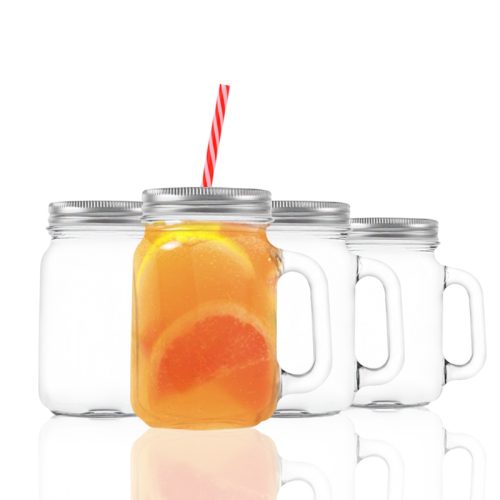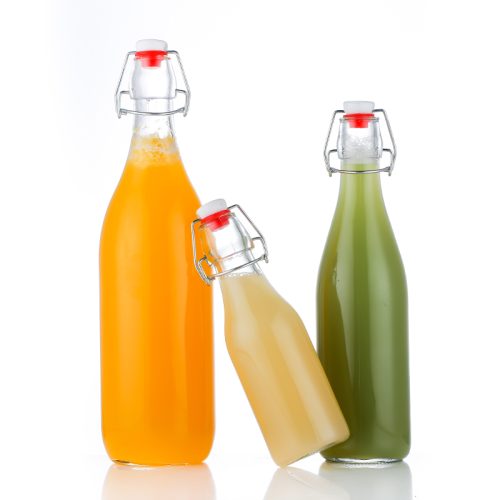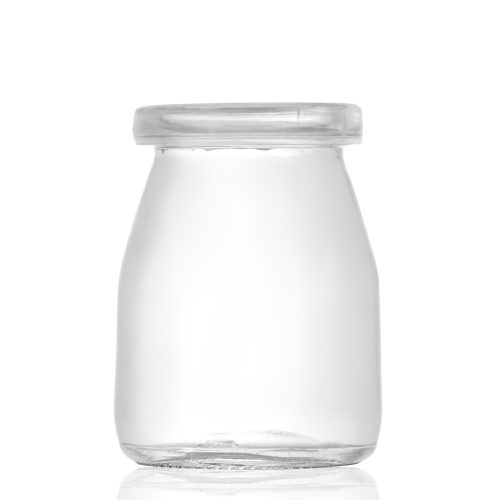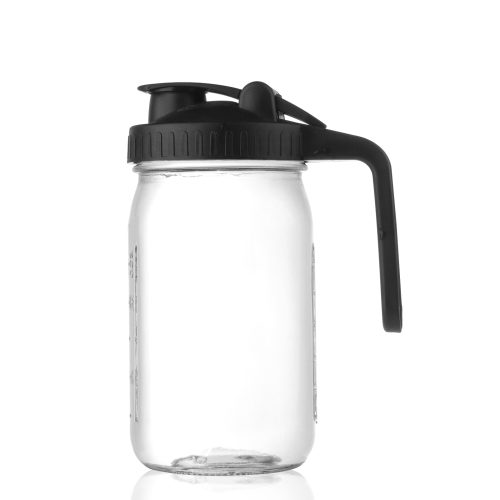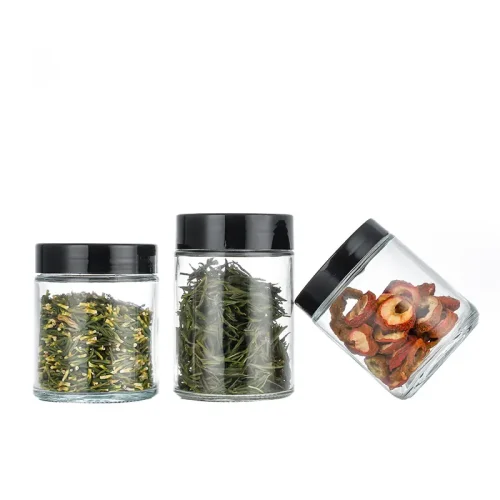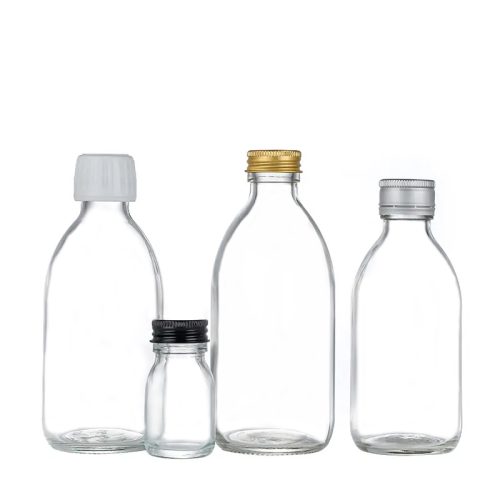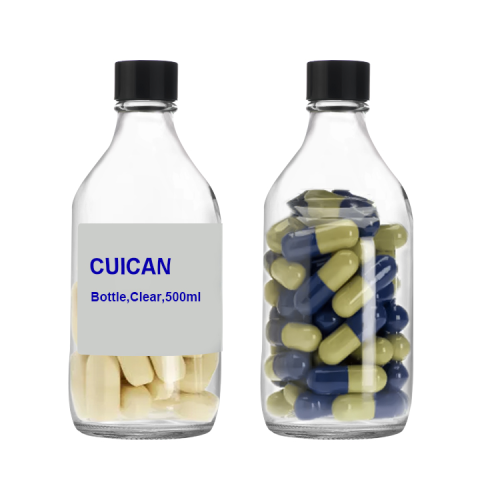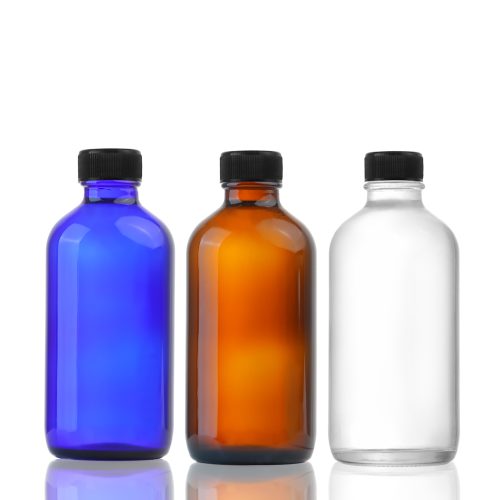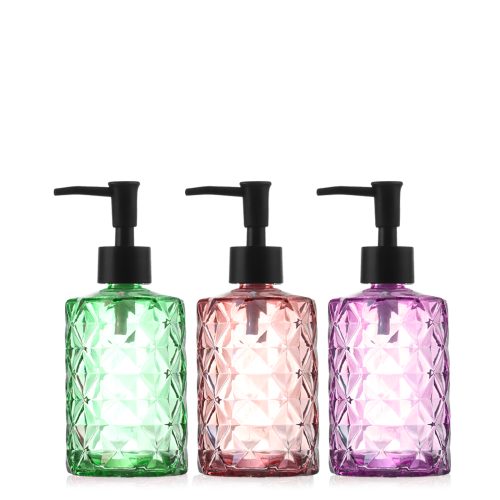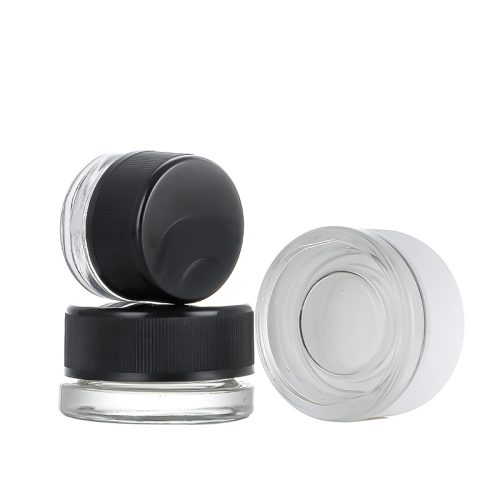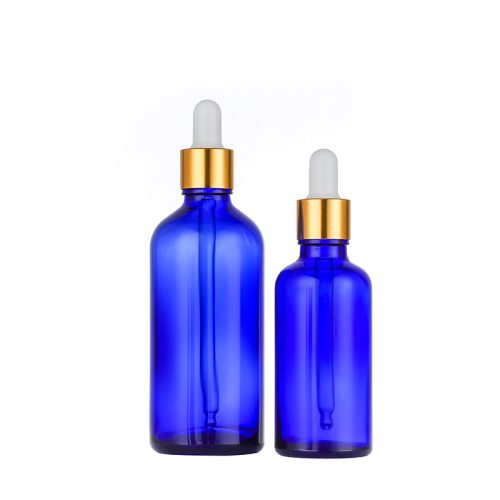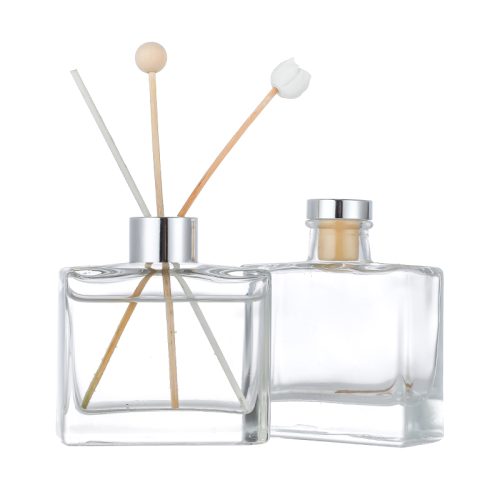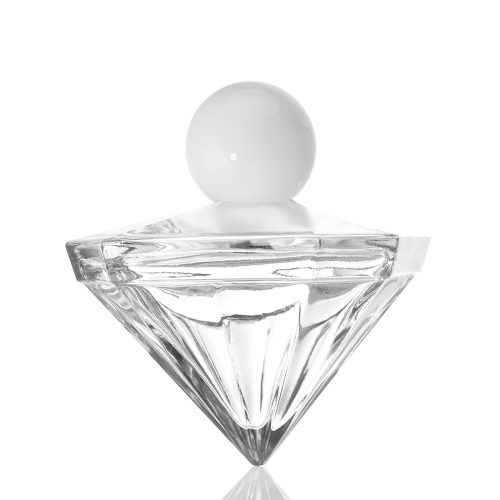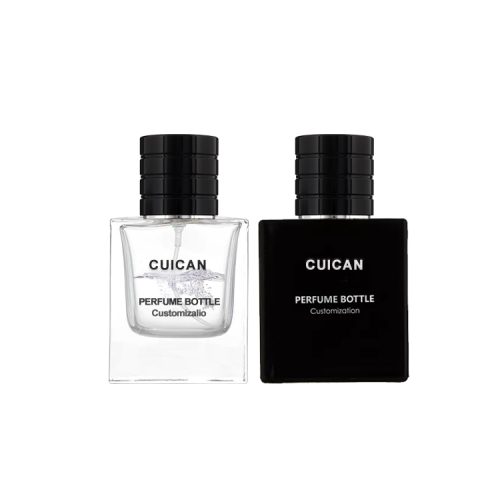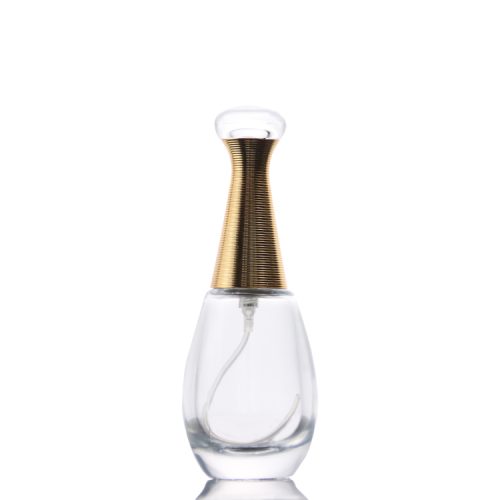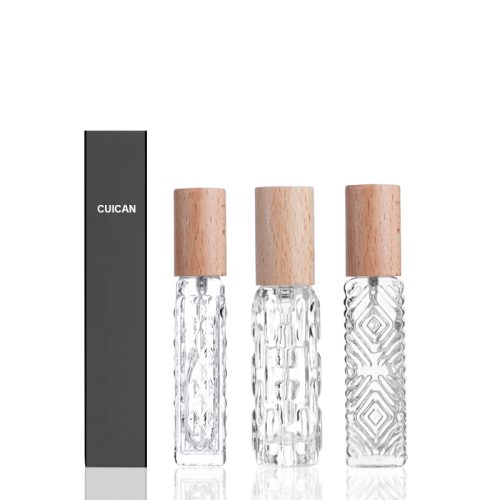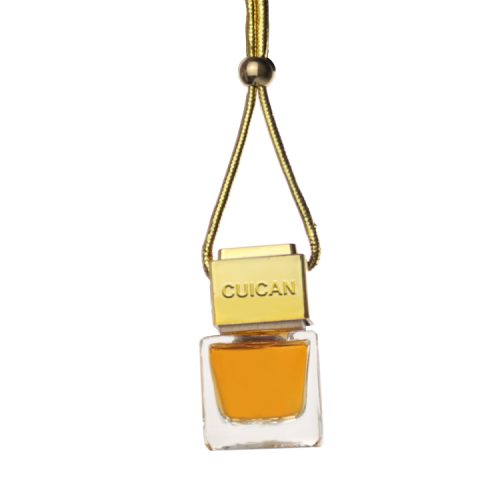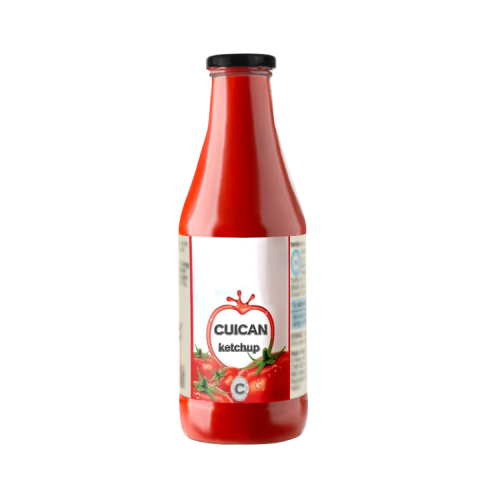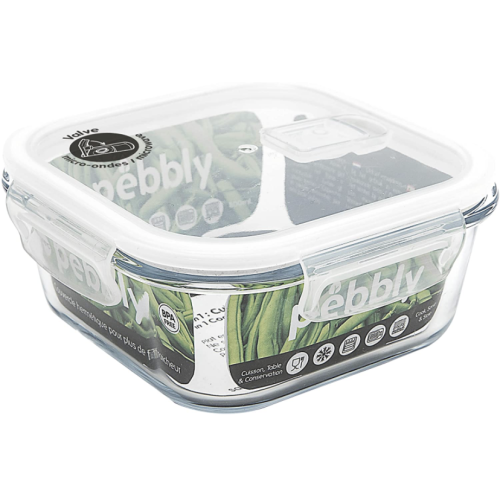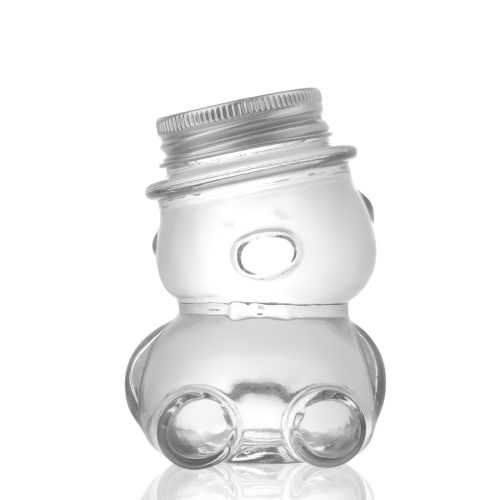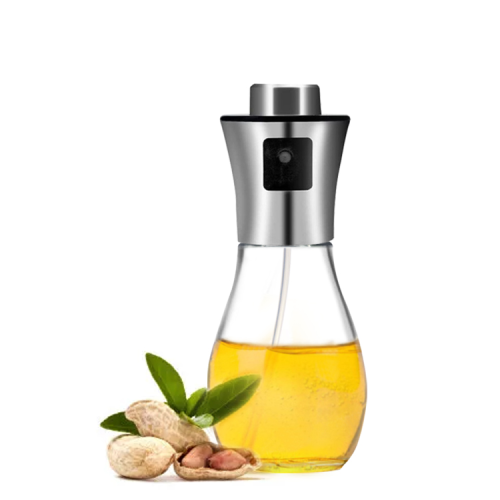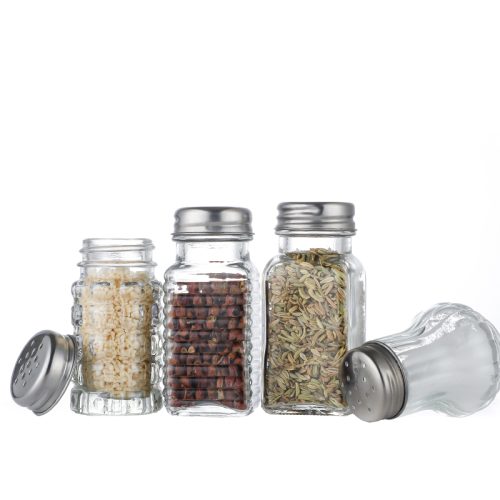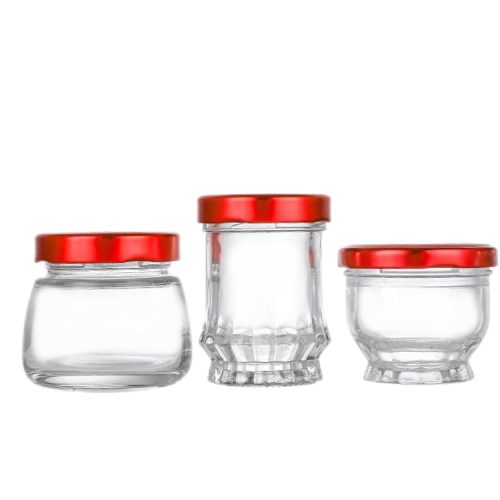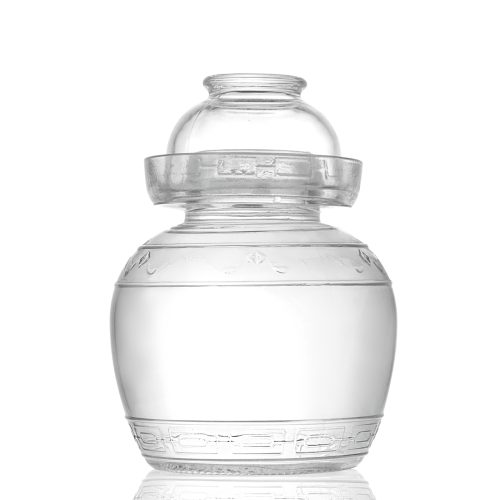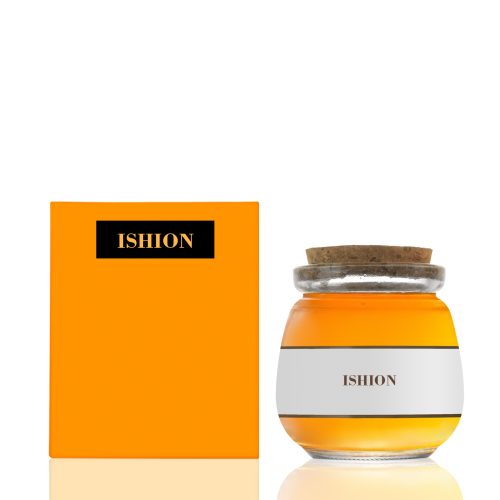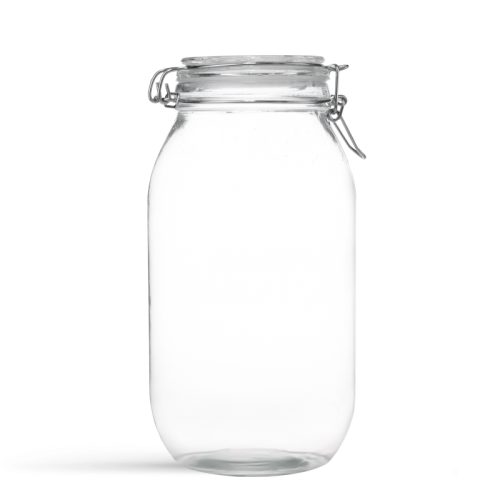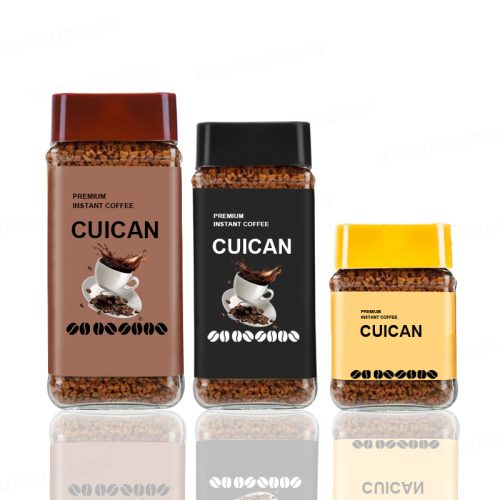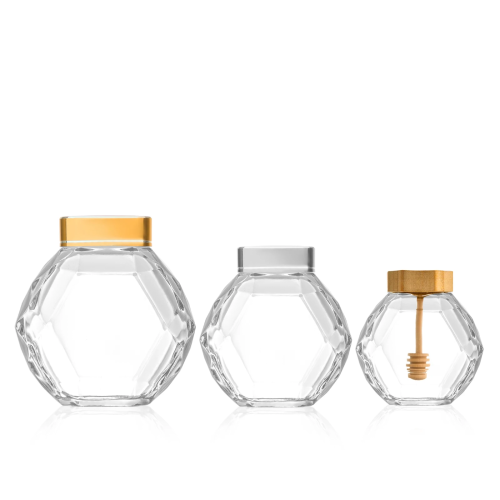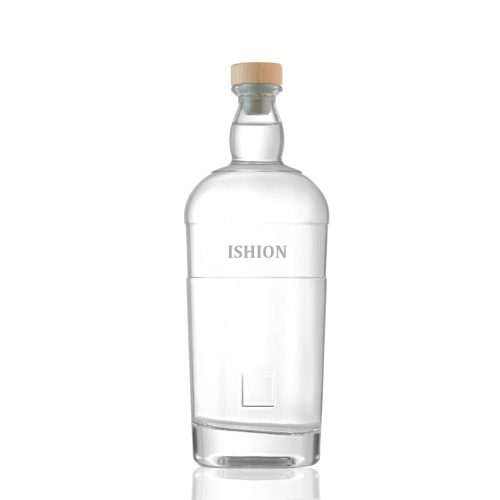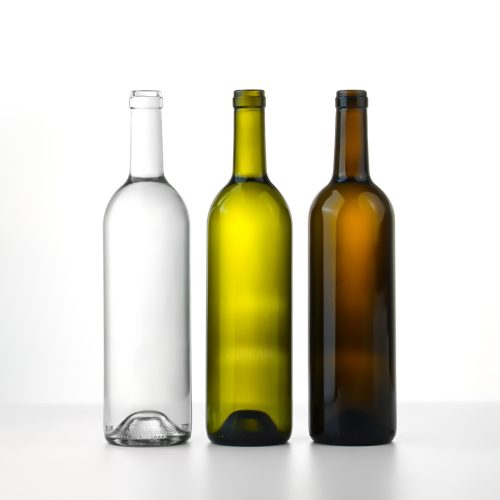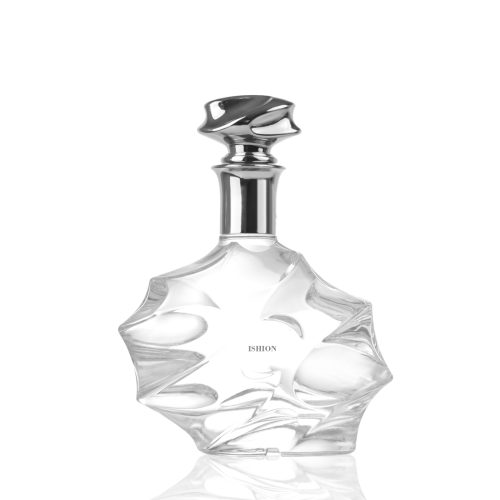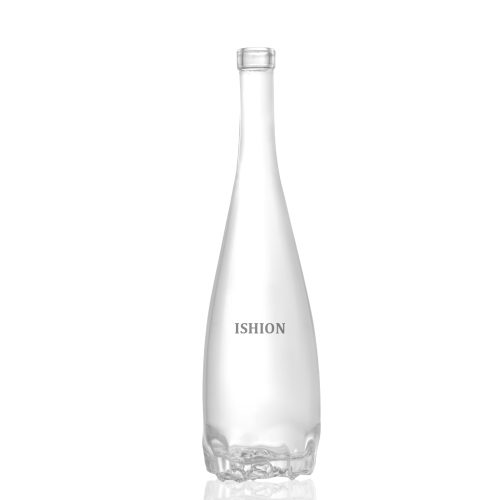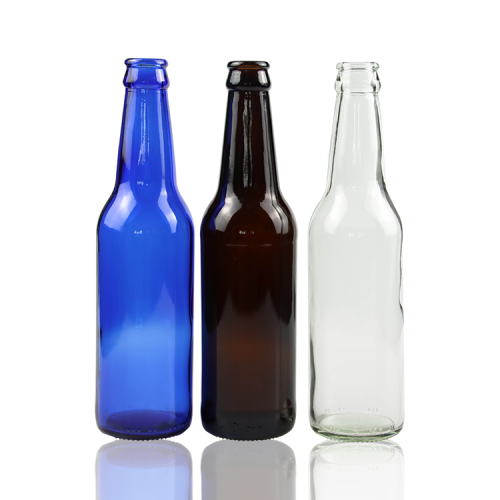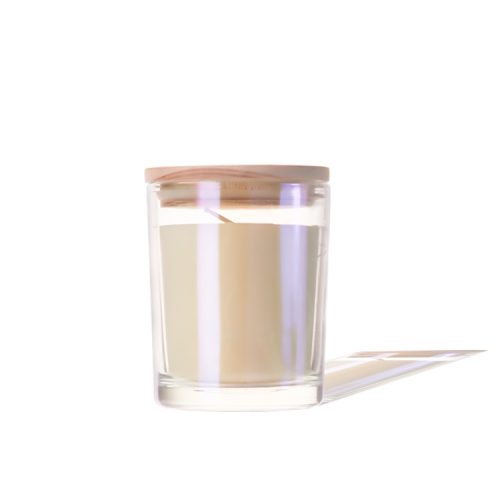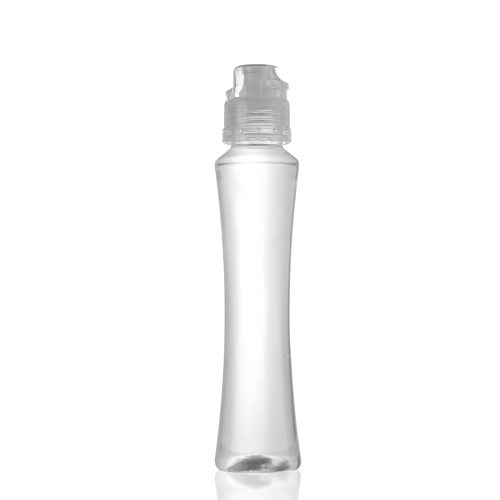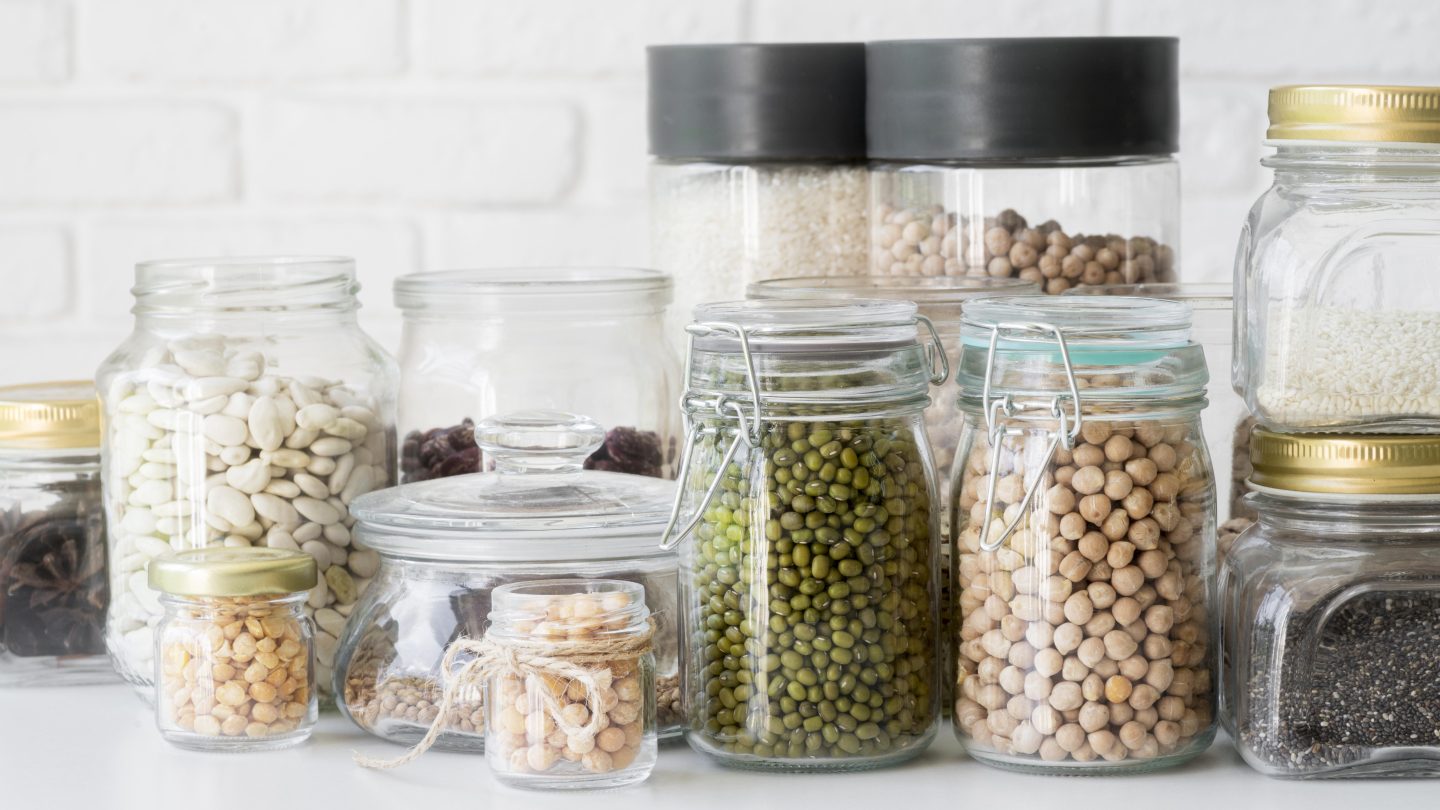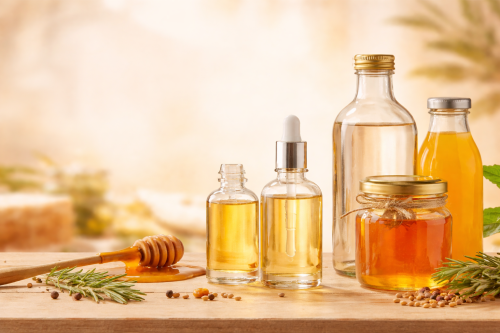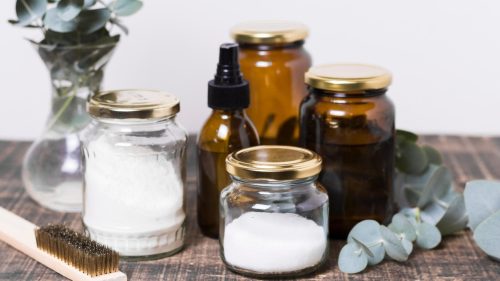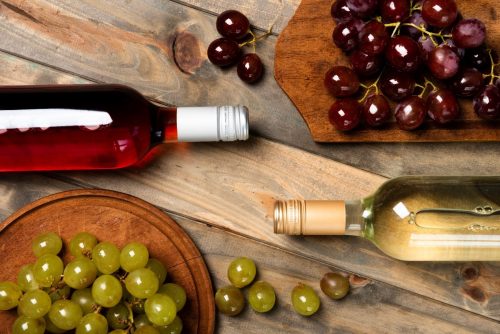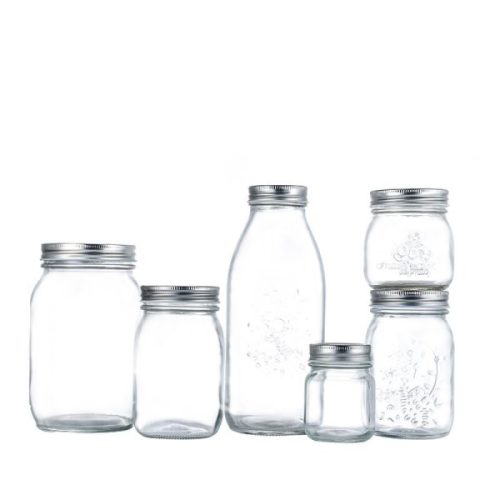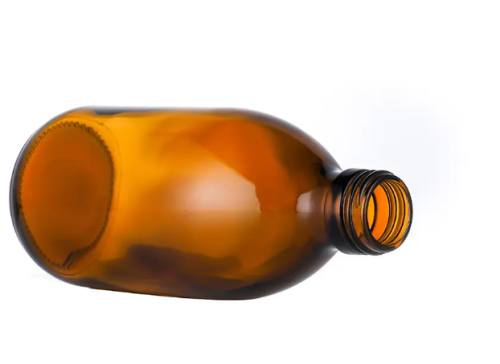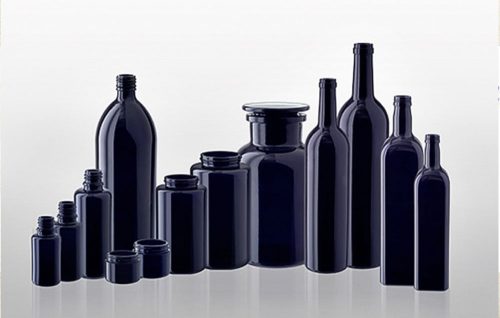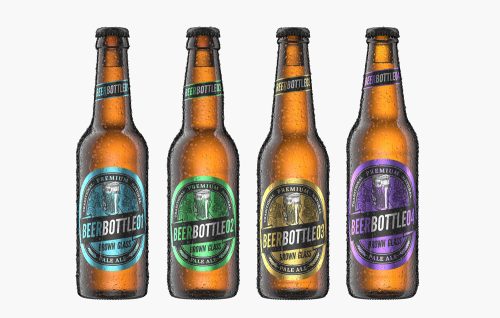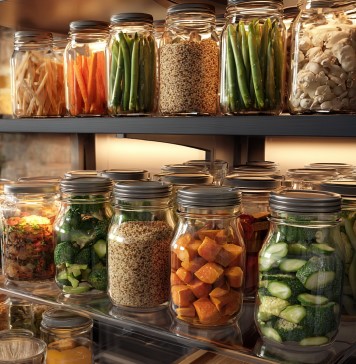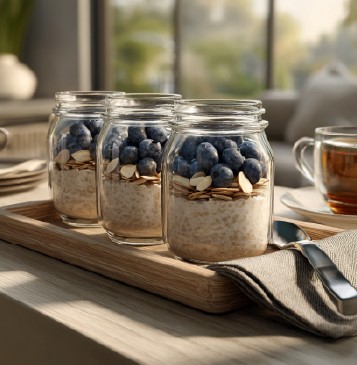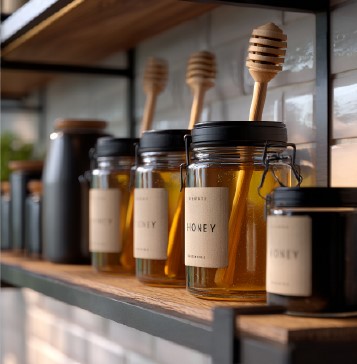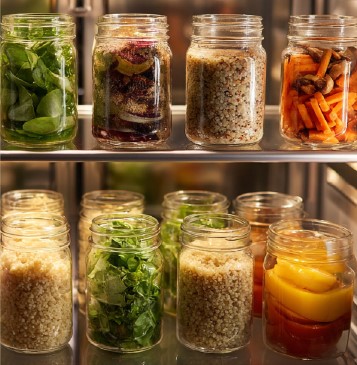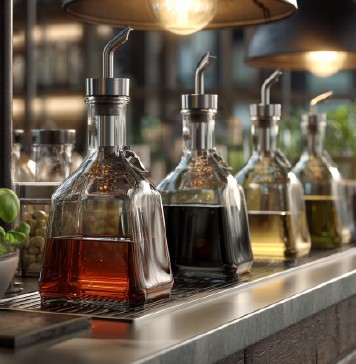-
Arabic
-
English
-
French
-
Malagasy
-
Portuguese
-
Russian
-
Spanish
-
Thai
Glass food storage jars play a key role in keeping ingredients fresh, organized and safe. Compared with plastic or ceramic containers, glass stands out for its purity, durability and ability to preserve food without absorbing odors or chemicals. Glass jars have become the preferred choice in modern kitchens because they protect food quality, prevent contamination, simplify organization and support a more sustainable lifestyle.
In this guide, you’ll learn everything about food storage jars and their uses—including the best applications for glass jars, how to choose the right type for different ingredients, and why glass remains the most reliable long-term food-storage solution.
What Are Food Storage Jars?
Food storage jars are containers designed to protect food from moisture, air and contaminants. Their purpose is not only to store food but to maintain freshness, reduce waste and improve kitchen efficiency.
Glass jars are the highest-performing type among all food storage containers. They are non-porous, odor-resistant, chemically inert and suitable for a wide range of ingredients. While plastic and ceramic jars exist, glass jars offer unmatched safety and visibility, making them ideal for everyday home and commercial food storage.
Why Glass Food Storage Jars Matter More Than Other Materials
Freshness & Preservation
Glass jars protect food from humidity and oxidation. Their airtight seals keep dry goods crisp, prevent insect intrusion and preserve flavors far longer than original packaging. This makes them especially suitable for flour, grains, coffee beans and nuts.
Health & Safety
Glass is an inert material that does not react with food—especially acidic, oily or salty ingredients. It does not leach chemicals such as BPA or phthalates, which can sometimes be found in certain plastics. For households prioritizing clean and safe food contact, glass jars are the safest option.
Visibility & Organization
Transparency is a major advantage. You can instantly see quantities, colors and textures, making inventory management and meal planning significantly easier. This visual clarity also creates a cleaner, more organized pantry.
Temperature Resistance
High-quality glass jars withstand refrigeration, room temperature storage and controlled heat applications. Canning-grade jars can handle hot-fill processes and water-bath canning, making them ideal for preserves and fermented foods.
Sustainability
Glass is 100% recyclable and can be reused indefinitely without losing purity or durability. Switching from disposable plastic containers to glass jars reduces overall waste and long-term environmental impact.
Types of Glass Food Storage Jars
Different types of glass jars suit different storage tasks. Here’s a clear breakdown of the most common categories.
Regular Glass Pantry Jars
Perfect for dry goods such as rice, pasta, oats and sugar. Their wide opening makes scooping and refilling easy.
Mason Jars
Popular for meal prep, beverages, sauces and refrigerator storage. Their screw-top lids provide consistent sealing strength.
Clip-Lock Glass Jars
Known for airtight performance, ideal for coffee beans, nuts, flour and items sensitive to moisture.
Canning-Grade Glass Jars
Designed for jam, pickles, fermented foods and long-term preservation. These jars can withstand heat processing.
Dark or Amber Glass Jars
Used for oils, spices and ingredients sensitive to light. They prevent flavor degradation and preserve nutrient quality.
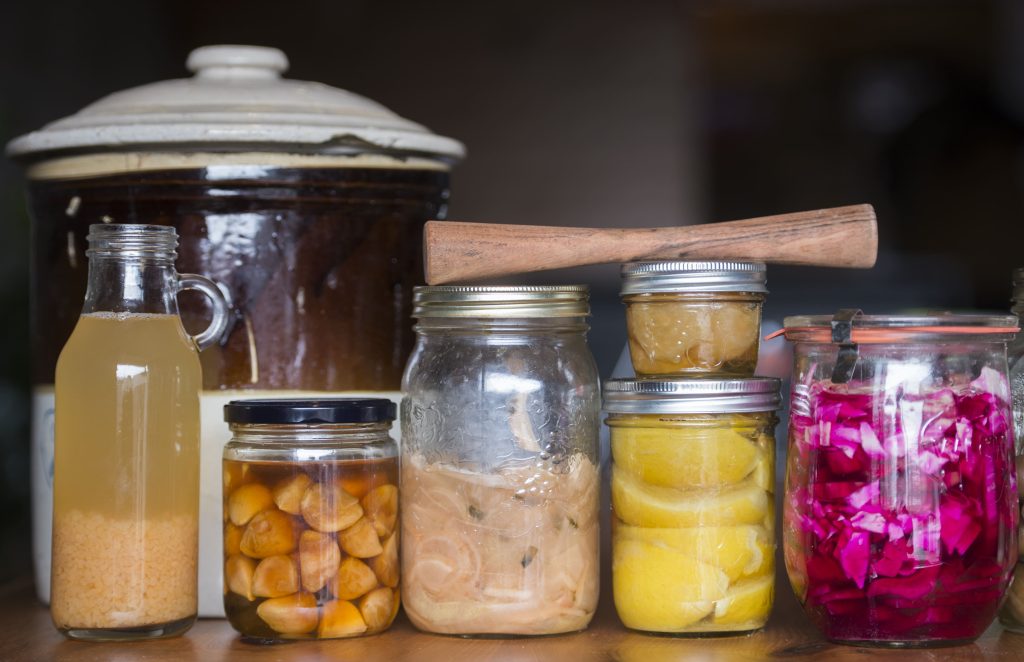
Types of Glass Jars and Their Best Uses
| Glass Jar Type | Best Uses | Advantages | Notes |
|---|---|---|---|
| Regular Pantry Jars | Grains, sugar, pasta, oats | Clear visibility, stable, airtight | Great for everyday pantry needs |
| Mason Jars | Sauces, meal prep, beverages | Versatile, durable lids | Ideal for fridge and portable meals |
| Clip-Lock Jars | Nuts, coffee, flour, snacks | Strong airtight seal, moisture protection | Best for humidity-sensitive foods |
| Canning Jars | Pickles, jams, fermented foods | Heat-resistant, safe for hot-fill | Must be used properly for canning |
| Dark Glass Jars | Oils, spices, herbs | Protects from light exposure | Best for light-sensitive ingredients |
Food Storage Jars and Their Uses
Different foods require different jar types. Here’s how to match your ingredients to the right glass jar.
Dry Goods (Rice, Flour, Pasta, Oats)
Wide-mouth glass jars are ideal for dry goods. They prevent moisture infiltration and keep ingredients fresh longer than paper or plastic packaging.
Snacks, Nuts & Dried Fruits
Medium-size jars allow quick access while ensuring freshness. Clip-lock jars are especially beneficial for nuts that go stale easily.
Herbs & Spices
Use small jars or amber glass jars to preserve aroma and protect delicate flavors from light.
Liquids: Oils, Sauces, Dressings
Glass jars do not react with acidic or oily foods, making them safe for tomato sauces, vinaigrettes, broths and homemade condiments.
Meal Prep & Leftovers
Mason jars provide convenient, portable storage. They are perfect for layered salads, overnight oats or single-serving soups.
Pickling & Preserving
Use canning-grade jars for jams, pickles, fermented vegetables and long-term preservation. Their resistance to heat and pressure ensures food safety.
Food Types and the Best Glass Jar for Each Use
| Food Type | Best Glass Jar Type | Why It Works |
|---|---|---|
| Flour, oats, pasta | Regular pantry jar / clip-lock jar | Airtight and moisture-resistant |
| Nuts, dried fruits | Clip-lock jar | Prevents staleness caused by humidity |
| Herbs & spices | Amber glass jar | Protects flavor from light |
| Oils & liquids | Mason jar / dark glass jar | Non-reactive, leak-resistant |
| Pickles & jams | Canning jar | Heat-safe for preservation |
| Meal prep items | Mason jar | Portable and durable |
How to Choose the Right Glass Jar
Choosing the right jar ensures food stays fresh, safe and easy to access.
- Storage capacity: Match jar size to ingredient volume.
- Mouth opening: Wide-mouth jars are easier for scooping and refilling.
- Sealing type: Clip-lock jars offer maximum moisture protection.
- Temperature tolerance: Use canning-grade jars for any heat-based processing.
- Light exposure: Choose dark glass for oils and spices.
By aligning jar characteristics with the foods you store, you create a more efficient kitchen ecosystem.
Health & Chemical Safety with Glass Jars
Glass is the safest food-storage material. It is chemically inert and resists stains, odors and reactions with acidic foods. In contrast, certain plastics may release unwanted chemicals when exposed to heat, oil or acidity.
Glass jars provide peace of mind for families who prioritize healthy storage, especially for baby food, sauces, broths and long-term pantry items.
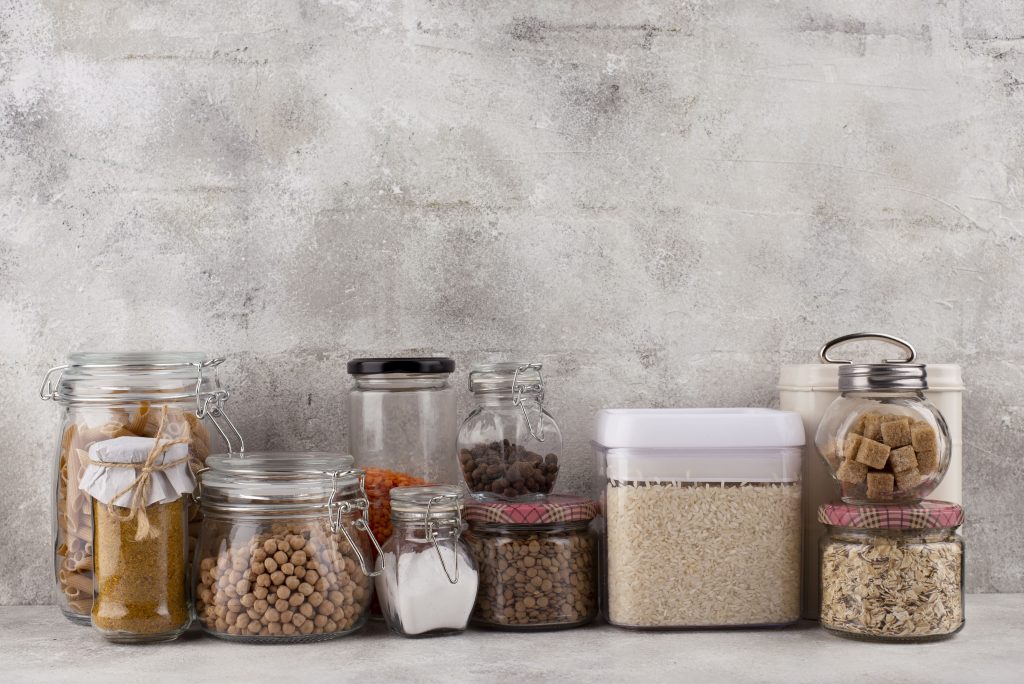
How to Organize Your Pantry With Glass Jars
Transforming your pantry with glass jars is simple and visually rewarding.
- Group jars by category (baking, grains, snacks).
- Label contents and dates for easy tracking.
- Place high-use items at eye level.
- Arrange jars by height and size for visual harmony.
- Keep heavier jars on lower shelves for safety.
A well-organized pantry increases efficiency and reduces waste.
Creative Uses of Glass Jars Beyond Food
Glass jars have endless uses around the home.
- Mini vases for flowers
- Candle holders
- Bathroom containers for cotton pads
- Office storage for pens and small tools
- Craft organization for beads, buttons and ribbons
- Gift packaging for homemade treats
These practical and aesthetic applications reduce waste while adding charm to your home.
Common Mistakes to Avoid
Avoid these issues to maximize jar performance:
- Freezing liquids without leaving expansion space
- Pouring hot liquid into cold glass
- Using non-airtight jars for powders
- Storing oils in clear jars exposed to light
- Using non-canning jars for heat processing
Correct usage ensures safety, longevity and food quality.
Sustainability & Cost Benefits
Although glass jars cost more upfront, they last for years and never degrade in quality. Their durability and reusability dramatically reduce long-term storage costs and kitchen waste.
By switching to glass, households and businesses support a cleaner environment and more responsible food-storage habits.
Conclusion
Glass food storage jars offer consistent performance in preservation, material safety and long-term reliability. When assessing food storage jars and their uses, glass stands out for its stability, clarity and resistance to chemical interaction.
Selecting the appropriate glass jar type for each material supports better control, reduces waste and maintains uniform storage standards over time. This ensures a cleaner, more structured and more sustainable storage process across varied applications.










